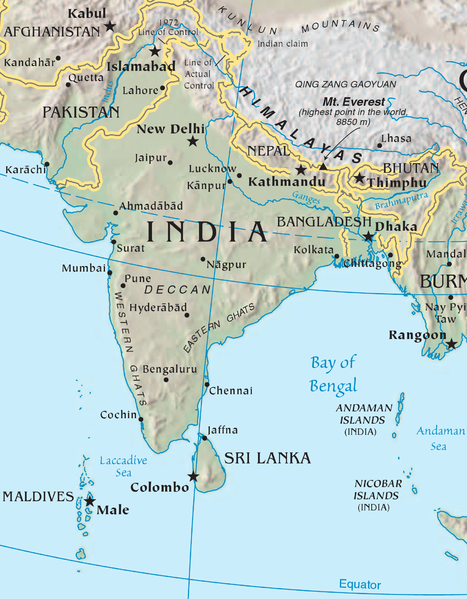Bollywood provides more than entertainment to the 1 billion people of India, the stars of the cinema are also in the news occasionally on topics of infectious diseases.

73-year-old actor, Amitabh Bachchan, who was diagnosed with tuberculosis fifteen years ago, has been involved in the launching of the TB-free Haryana program. The megastar was treated and is in perfect health.
“… I was diagnosed with TB in 2000 and I felt that I need to talk about it because I have a personal interest in the cause”, he said. “I became the part of this mission and I will be happy if my endorsement for the cause can help safeguarding health of the people,” he added.
The actor along with Haryana Chief Minister Manohar Lal Khattar was present at the launch of two mobile vans to support in the campaign and he took the occasion as a platform to break myths attached with the disease.
“Normally TB is associated with people, who live in poor conditions, … But what I want to convey is that irrespective of the environment you live in there is a possibility that you can attach TB to your body,” he said.
Related: 1.5 million people killed by TB globally in 2014: WHO
In related news, illness has struck the Bigg Boss 9 house, according to a Business of Cinema report. They say that Digangana Suryavanshi is battling with typhoid after doctors confirmed her reports. In addition, the captain of the house, Suyyash Rai has been sick with vomiting and fever.
Bigg Boss asked doctors to enter the house for immediate treatment of both Suyyash and Digangana.
Typhoid fever, also known as Salmonella typhi, is a life-threatening bacterial infection. Typhoid fever is still common in the developing world, where it affects about 21 million people annually.
Salmonella typhi lives only in humans. Persons with typhoid fever carry the bacteria in their bloodstream and intestinal tract. In addition, a small number of persons, called carriers, recover from typhoid fever but continue to carry the bacteria. Both ill persons and carriers shed S.typhi in their feces.
You can get typhoid fever if you eat foodor drink beverages that have been handled by a person who is shedding S. typhi or if sewage contaminated with S. typhi bacteria gets into the water you use for drinking or washing food. Therefore, typhoid fever is more common in areas of the world where handwashing is less frequent and water is likely to be contaminated with sewage.
Typhoid fever can be successfully treated with appropriate antibiotics, and persons given antibiotics usually begin to feel better within 2 to 3 days.
Learn more about typhoid fever in this educational video
Related:
- Bollywood superstar, Aishwarya Rai Bachchan says pregnant women should shed the fear of HIV/AIDS test
- Abhishek Bachchan spreads awareness of neglected tropical diseases, named END7 campaign ambassador in India
- Bollywood actor, Nikhil Dwivedi, recovers from dengue fever


One thought on “Bollywood: Amitabh Bachchan and TB-free Haryana, Digangana Suryavanshi battles typhoid”